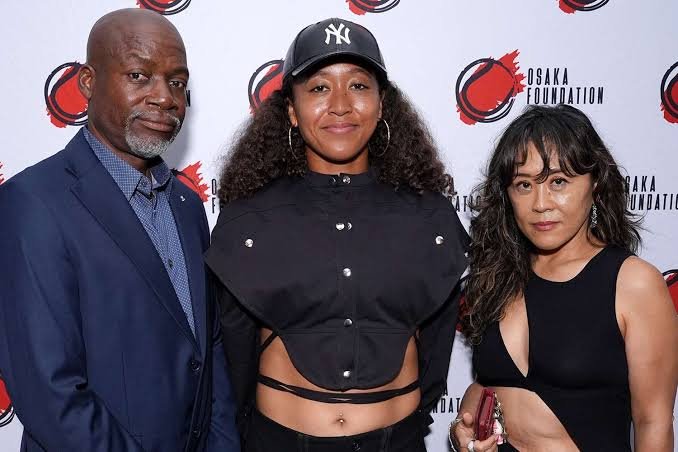
1. Introduction

Naomi Osaka has captivated tennis fans worldwide, not just with her powerful serves and four Grand Slam titles, but also with her multicultural roots and the path she chose in international representation. Two frequent questions about her background are: Are her parents still together? and Did she ever play for the United States? Let’s explore these in detail.
2. Naomi Osaka’s Parents: Who Are They?
2.1. Background & Early Life
Naomi was born on October 16, 1997, in Osaka, Japan, to Leonard François (from Haiti) and Tamaki Osaka (from Japan). The couple met in the 1990s when Leonard, then a college student in New York, visited Hokkaido, where Tamaki was in high school. Despite initial disapproval from Tamaki’s family, they continued their relationship and later settled in Japan, where Naomi and her older sister, Mari, were born.
When Naomi was about three years old, the family moved to the United States—first to Long Island, New York, and later to Florida—to access better training opportunities. Leonard, inspired by Richard Williams (father of Venus and Serena Williams), coached his daughters in tennis despite not being a professional player himself.
2.2. Are Her Parents Still Together?
Yes, Naomi Osaka’s parents—Leonard François and Tamaki Osaka—are still together. They have been married since 1999 and remain a strong, supportive presence in her life and career.
3. Did Naomi Osaka Ever Play for the United States?
3.1. Citizenship & Early Representation
Though Naomi grew up in the U.S., she always represented Japan in international competitions. She held dual citizenship (Japanese and American) as a child, but Japanese law required individuals with dual nationality to choose one before age 22. True to her roots, Naomi relinquished her U.S. citizenship in October 2019, just before turning 22, in order to officially represent Japan—particularly at the Tokyo Olympics in 2021.
3.2. Why She Represented Japan
Tamaki Osaka shared that the decision was influenced by her daughters’ deep connection to Japan. Both Naomi and Mari always identified strongly as Japanese, making the choice clear and culturally driven—not financially motivated. Naomi herself confirmed in a docuseries that she had been competing under the Japanese flag since age 14 and that representing Japan was never a secret.
4. Summary Table
| Question | Answer |
|---|---|
| Are Naomi Osaka’s parents still married? | Yes—they married in 1999 and continue to support her career. |
| Did Naomi Osaka ever represent the United States? | No—she always represented Japan and formally renounced U.S. citizenship in 2019. |
5. Additional Insight: Family’s Role in Her Career
Leonard and Tamaki played pivotal roles in Naomi’s development—not just as supportive parents, but as her earliest coaches and cultural anchors. Their decision to raise her in a bicultural environment, speak Japanese at home, and give her a Japanese surname (Osaka) for practicality helped shape her identity and international representation. Naomi Osaka parents still together.
6. FAQs
6.1. Are Naomi Osaka’s parents still together?
Yes. Leonard François and Tamaki Osaka, married since 1999, remain united and supportive of their daughters.
6.2. What are the nationalities of Naomi Osaka’s parents?
Her father, Leonard François, is Haitian; her mother, Tamaki Osaka, is Japanese.
6.3. Did Naomi ever play for the U.S.?
No. Although she grew up in the U.S., she always represented Japan and formally relinquished U.S. citizenship in 2019 to compete for Japan.
6.4. Why did she have to give up U.S. citizenship?
Japanese law requires dual nationals to choose one citizenship by age 22. Naomi gave up her U.S. citizenship in 2019 to represent Japan in the Olympics.
6.5. How did her parents influence her tennis career?
Her father coached her from a young age, drawing inspiration from the Williams sisters’ training model. Her mother ensured their cultural identity and values were central in Naomi’s upbringing. Naomi Osaka parents still together.
Conclusion
Naomi Osaka’s journey is shaped not just by her extraordinary skill on the court, but by conscious choices about family and identity. Her parents—still together—provided both the emotional and cultural foundation that influenced her decision to represent Japan, not the United States. If you have more questions about Naomi, her family, or her career, feel free to ask!
